If your information has been exposed on the dark web, there are steps that you can take to limit damage. For instance, changing passwords and closing compromised accounts are among the options available to you.
Specialized entities and agencies that monitor the dark web can notify their subscribers if their personal information has been discovered, like credit monitoring agency Experian. Furthermore, these monitoring entities and agencies offer protective measures, such as providing free one-time dark web scans.
Dark web definition
The dark web is an alternative network that is inaccessible through traditional search engines such as Google or Bing, relying instead on software like Tor to hide users’ identity and location – this enables it to host illicit markets where drugs, weapons and hacking services are sold.
Criminals employ the dark web to promote terrorism and spread offensive material such as pornography or images depicting child abuse, some websites even support neo-Nazi and white supremacist views, while some others sell illegal drugs whose quality has been called into question by studies.
Dark web can be treacherous terrain for those unaware of its risks, with cybercriminals frequently preying upon unwary users and malicious actors stealing personal data from infected computers containing malware. Therefore, identity theft monitoring and antivirus protection must be implemented for maximum protection.
The deep web
The dark web is an anonymous, encrypted section of the internet accessible with specific software, often used by criminals to sell illegal drugs, stolen credit card data, weapons and other contraband. Cybercriminals also utilize it as a marketplace where they can purchase malware such as ransomware and keyloggers (which record every keystroke you make on your device) as well as other forms of malicious software.
Tor is the go-to browser for accessing the dark web, offering secure communication through encrypted messages sent between sites on it and their visitors. Tor accomplishes this feat through an extensive network of “onion” routers; each router removes one layer of encryption before passing on its message – making it virtually impossible to track its source or recipient.
The dark web is home to numerous forums where individuals can discuss illegal, immoral and unethical activities or topics. Furthermore, several services exist which allow people to transfer files securely. Because of these risks associated with dark web usage, cybersecurity experts advise against frequenting it.
The dark web
The dark web is a hub of illicit activities, from selling stolen data, drugs, firearms and fake IDs to selling stolen identity documents. Access is gained using Tor Browser which employs an anonymizing network of servers known as nodes to send and receive messages – making it virtually impossible to trace messages back their source from start to finish.
Though pedophiles and sexual offenders may often find refuge on the dark web, its anonymity also serves a number of legitimate uses by those seeking anonymity – for instance purchasing digital currencies like Bitcoin on this underground marketplace allows users to make online purchases without fear of law enforcement coming after them.
Hackers and criminals still take advantage of the dark web’s anonymity to sell stolen data online – from stolen credit card numbers to counterfeit passports – with accounts like email, social media and cryptocurrency wallet credentials readily available to be bought there. In addition, there are sites selling services such as phishing attacks and hacking tools as well.
Deep web vs. dark web: What’s the difference?
The deep web refers to all content not indexed by popular search engines, including password-protected sites, chat conversations and private posts on social media. Conversely, the dark web refers to a subset of the deep web which contains more dangerous or illicit material and activities.
For access to this portion of the internet, specific software is required – like Tor. This browser routes all traffic through a network of servers so it cannot be traced or identified and allows access to websites with URLs ending in “.onion”, otherwise inaccessible from traditional search engines.
While many use the dark web for illegal activities, law enforcement and security professionals also utilize it as a resource to gather threat intelligence and secure their organizations. Security staff can monitor exchanges on dark web forums in order to identify and stop cybercriminals before launching attacks; and use threat intelligence gleaned from browsing to detect and prevent malware infections that spread throughout multiple networks.
How to access the dark web?
The dark web lies beyond the reach of surface web search engines and requires special software for access. It features password-protected pages, private forums and customized resources; illegal marketplaces; information regarding malware/scams etc can all be found there as well as resources dedicated specifically to them.
Tor is the go-to solution for accessing the dark web, routing traffic through encrypted connections that hide geo-location and browsing histories from prying eyes. For optimal safety and speed, however, use Tor in combination with a VPN (known as Tor-over-VPN) for even greater protection and speed.
Just like when navigating the surface web, keeping your antivirus software updated on the dark web is of equal importance. Because its sites are unregulated, viruses or malware could easily enter through them and end up on bank statements or download from breached websites. If you suspect your personal data has been exposed online through any means whatsoever, contact your bank immediately in order to review accounts that have been exposed on dark web platforms.
Is it illegal to go on the dark web?
The dark web can often be seen as an oasis from overly intrusive governments and corporate surveillance, yet it also serves as a breeding ground for illicit activities. There are dark web marketplaces where illicit goods such as drugs, weapons and weapons can be purchased; stolen personal data including passwords, bank account info and social security numbers is sold; while there are websites promoting neo-Nazi ideologies among other extremist groups.
To safeguard against such risks, it’s recommended that when browsing the dark web you use a VPN. A VPN encrypts your connection and conceals your real IP address to make it difficult for anyone to track your online activities. Alternatively, download Tor – a free browser which routes internet traffic through nodes located around a network of servers known as nodes; making it harder for law enforcement agencies to track your activities online.
VPN and Tor browser are essential to staying safe when browsing the dark web, though remembering your anonymity doesn’t guarantee protection from being caught by anyone.
How to access the dark web safely?
Internet is a vast system, housing information about virtually everything and everyone. People may become concerned when hearing terms like “Dark Web.” However, browsing it doesn’t pose any more danger than any other part of the web; although certain risks do apply.
Dark Web sites tend to be short-lived. Their existence may end when their activities become illegal, their founders tire of running them or they become exposed by security researchers. Furthermore, unlike their surface web counterparts, dark web websites lack security provisions that safeguard users against malware and phishing attacks.
Therefore, when browsing the dark web it’s essential to use both VPNs and Tor Browser as part of a comprehensive security strategy. A VPN hides your IP address while encrypting data; Tor Browser routes connections through volunteer relays for anonymity – these together offer optimal protection from potential threats.
Is the dark web dangerous?
Many have received emails informing them their personal information is up for sale on the dark web, due to data breaches that expose hundreds of millions of records each year, such as names, addresses, bank accounts, email addresses and credit card numbers – making this information highly sought after by criminal hackers.
Furthermore, the dark web provides access to illegal pornography and services that cannot be purchased legally in real life. Scammers also purchase access to botnets for sending spam or phishing messages or conducting distributed denial-of-service attacks from it.
No one can fully protect their information from being exposed on the dark web, but taking measures such as creating unique passwords for online accounts and activating two-factor authentication can reduce identity theft risks. Companies like Experian and Norton LifeLock offer dark web monitoring that alert you if any of your personal details have made their way onto it.
The Dark Web – A Haven For Criminals
The dark web can be an unsavory source of illicit activity such as arms trafficking and drug trading; yet it contains invaluable sources of knowledge.
Most people access the dark web using Tor, an encrypted software program which routes your Internet signal through multiple servers in order to make it harder for authorities to track you.
The history of the dark web
The dark web is an anonymous corner of the internet where criminals sell illegal goods and services. Unindexed by search engines, this section of the internet can only be accessed using Tor’s anonymizing browser – this process encrypts data before passing it along a network of routers known as onion layers, each one peeling back an extra layer before sending onward. As its name implies, this provides users with some degree of privacy by disguising their location and making it nearly impossible for authorities to track their activities.
Even though the dark web is often associated with criminal activity, its services can also be used by people seeking privacy for perfectly legitimate purposes – for instance journalists and whistleblowers use it to communicate while remaining hidden from prying eyes.
Criminals utilize the dark web as an outlet to sell illegal drugs, weapons, fake passports and user accounts stolen in data breaches or hacking incidents; criminals also sell stolen personal data from data breaches and hacking incidents via marketplace listings on this platform; according to one study, over 60% of dark web marketplace listings can be used against businesses.
How big is the dark web?
The dark web is an area of the Internet which cannot be reached using traditional search engines and is home to illegal activities including selling drugs, weapons and passwords for child pornographic use as well as large amounts of child pornography. Due to its anonymity, criminals and whistleblowers frequently turn to it for shelter.
But the dark web can also serve numerous legitimate functions. For instance, many use it to protect their privacy from government surveillance and there are websites dedicated to selling stolen information from data breaches.
The Dark Web is an opaque network of websites accessible with specific software and estimated to hold approximately 19 TB of legal and illegal content. Although much smaller than the World Wide Web, its potential growth potential remains significant.
Is the dark web used for illegal purposes?
The dark web serves a multitude of functions, from buying drugs to selling fake IDs. Hackers also sell tools and exploits such as ransomware that can steal personal information on it. Furthermore, marketplaces exist where individuals can purchase and sell illegal drugs or contraband; some well-known dark web marketplaces like Silk Road have even been closed down by authorities after reports of illegal sales or trafficking activity; scams and fraud are rampant across this part of cyberspace and often require upfront payments before being availed of.
Message boards and chatrooms are also widely utilized on the dark web for discussing illegal or dangerous activities, or hiding identities online if someone is vulnerable to harassment or discrimination.
Many websites on the dark web are associated with data breaches in which personal and financial information has been leaked online. If you think your information has been leaked online, take immediate steps. Change your passwords, review bank statements for suspicious transactions and contact your bank if there are any discrepancies; consider also using malware scanners to scan devices for malware infections.
Advantages and disadvantages of the DarkWeb
The dark web can be an invaluable resource for people trying to evade government censorship. Dissidents in closed societies, for instance, can use it as an avenue of communication without fear that their governments will track their messages. Furthermore, journalists and whistle blowers utilize it when communicating with sources anonymously.
The DarkWeb is home to illegal activities such as arms trafficking and drug dealing. Many illegal websites feature content deemed exploitative – from child pornography and videos of violence or abuse, to sites promoting Neo-Nazi ideology or extremist beliefs, while pirated software and movies also often circulate within this online environment.
The dark web provides hackers and cyber criminals with a forum for exchanging tools and services, such as hacking into business customers’ computers to steal confidential data and launch attacks across the Internet. Furthermore, viruses pose a real risk on this forum: some can hijack webcams while others infiltrate your computer with ransomware that locks up files demanding money in return.
Ways to find Your Information Is on the Dark Web
If your information appears on the dark web, there are steps you can take to minimize risks. First and foremost is changing passwords immediately on accounts where sensitive data has been saved; secondly signing up for a credit monitoring service; thirdly using two-factor authentication for high-risk accounts to provide another layer of protection between hackers and your accounts;
Your personal data could end up on the dark web for any number of reasons, with one of the most prevalent being data breaches. When companies get compromised by hackers, cybercriminals gain unauthorised access to databases containing personal information such as names, addresses and Social Security numbers that contain personal data belonging to victims – thus leaving them open to identity theft and other forms of fraud.
Dishing out your information online through doxing attacks is another way it could end up on the dark web, as is posting it publicly for all to see. Aside from exposing your privacy, this could also cause financial complications should criminals use your details to open credit cards or loans in your name. Likewise, your data could reach the dark web if it had previously been exposed on public platforms on the surface web (e.g. a blog comment section or online chat service).
How to Protect Yourself on the Dark Web?
As soon as you hear of the Dark Web, your first thought may be that cybercriminals are buying and selling illegal products on these sites. While this may not always be the case, you must still exercise extreme caution when browsing this part of the internet.
The dark web consists of password-protected websites, forums and resources not indexed by search engines. You can access these resources using software such as Tor network browser, which connects to multiple servers to keep your identity anonymous while browsing the dark web. Furthermore, Virtual Private Network (VPN)s provide another layer of protection when surfing this alternative universe.
Many types of information circulate on the dark web, including stolen credit card details, compromised email accounts, banking account usernames and passwords, cryptocurrency wallet addresses and more. This data can be used to commit identity theft as well as financial fraud or hack other online accounts.
To protect yourself from becoming the victim of these scams, invest in an identity monitoring service like Aura which provides $1,000,000 worth of identity theft protection and can alert you immediately if your data is found online so that appropriate action can be taken immediately.
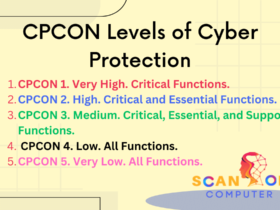






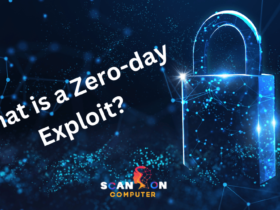
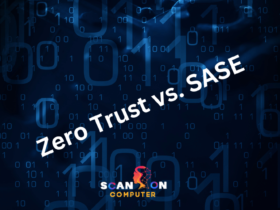
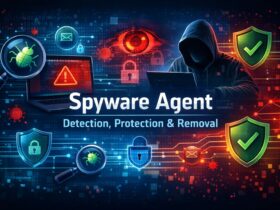

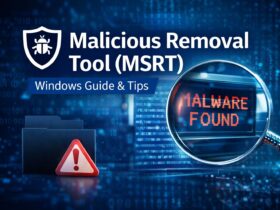
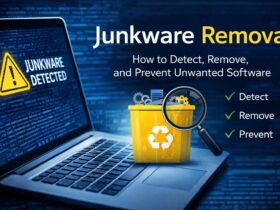
Leave a Reply
View Comments